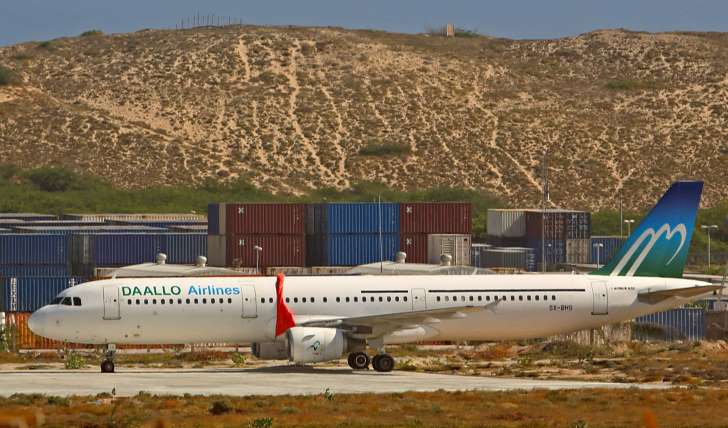Wheelchair Passenger Suspected As Suicide Bomber In Somalia Plane Explosion

A wheelchair passenger who boarded a commercial plane in Somalia’s capital may have been a suicide bomber responsible for Tuesday’s explosion that ripped a hole in the side of the aircraft as it took off. Investigators suspect the man was able to use the wheelchair to bypass rigorous security screening at Mogadishu's international airport and then detonated a bomb that damaged the fuselage but failed to down the Daallo Airlines flight, according to the Wall Street Journal.
“An individual got onto the plane in a wheelchair and is suspected of being the suicide bomber,” a Western diplomat briefed on the investigation told the New York-based newspaper Thursday.
The strength of the explosion ejected the alleged suicide bomber from the plane’s cabin and his body tumbled near the district of Bal’ad, about 20 miles from the capital, where it was recovered by authorities. The Djibouti-bound Airbus A321 was forced to make an emergency landing Tuesday, just minutes after jetting off from Aden Abdulle International Airport in Mogadishu.
Hussien Mohamed, a freelance journalist in Mogadishu, spoke with eyewitnesses who watched in horror from the ground in Bal'ad as the incident unfolded in the sky above them. “First, they heard a heavy explosion before they saw a body fall from the plane,” Mohamed said in an interview Thursday.
Somali officials said the passenger who fell from the plane has been identified as Abdullahi Abdisalam Borleh, 55, from Somaliland. But they did not confirm if the man was the alleged suicide bomber. The crew and the 74 other passengers on board survived, though two people, Abdirashid Abdi Islamil and Ismail Ali Osoble, were wounded.
“Somalia’s Deputy Prime Minister Mohamed Omar Arte indicated that as soon as the investigation is concluded, he promised the government will step up airport security against any potential threat,” a spokesperson from Somlia's Office of the Prime Minister said in a statement Thursday.
Investigators suspect al-Shabab, a Somalia-based terrorist group, was behind the explosion, U.S. government sources told Reuters Wednesday. Al-Shabab has increased efforts in recent months to regain control of lost territories in Somalia, while seeking to topple the country’s Western-backed government. The al Qaeda affiliate emerged in 2006 from the now-defunct Islamic Courts Union that controlled Mogadishu. Al-Shabab launched its own insurgency on major Somali cities by 2009, controlling Mogadishu and southern Somalia until it was driven out by domestic and international forces around 2012. Many rural areas of Somalia are still controlled by al-Shabab and the Sunni Militant group regularly targets civilians, hotels and restaurants in the capital.
Политика конфиденциальности | Правила пользования сайтом







